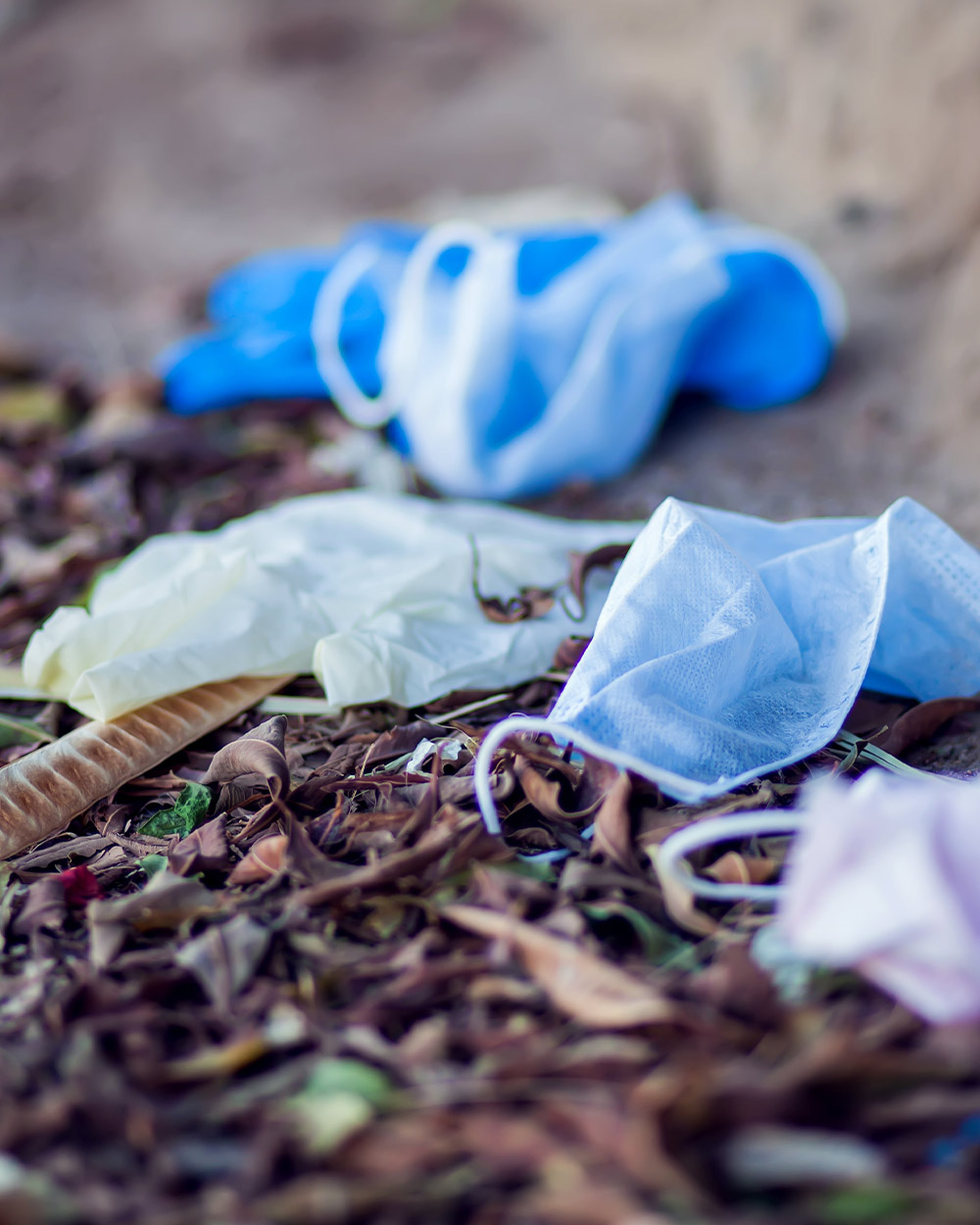
5 Simple Steps to Reduce the Environmental Impact of Disposable Face Masks
The COVID-19 pandemic has brought about many changes to our daily lives, one of which is the widespread use of face masks to prevent the spread of the virus.
However, as the pandemic continues, the discarded face masks are becoming a growing environmental scourge, the United Nations reports.

Help reduce the negative impact on the environment, one mask at a time.
One of the main concerns is the impact on land. As National Geographic reports, Discarded face masks, along with other forms of personal protective equipment (PPE), are commonly found littering streets, parks, and other public spaces. Scientific studies show these discarded masks can take hundreds of years to degrade and can harm many forms of wildlife. They can also clog drains and sewers, leading to flooding and other environmental problems.

There are eco-friendly options for disposable face masks.
The problem is not limited to land. Face masks, along with other forms of plastic pollution, are also finding their way into our oceans and rivers, where they can harm marine life and damage fragile ecosystems. Plastic debris in the ocean can take hundreds of years to degrade and can be mistaken as food by marine life, leading to starvation and death.
One of the most concerning impacts of disposable face mask pollution on wildlife is the harm caused by ingestion. As reported in ScienceNews, Birds, marine mammals, and other animals may mistake discarded face masks for food and ingest them, leading to starvation, suffocation, and even death. In some cases, the masks can also become entangled in the animals’ jaws or other body parts, causing injury or death.

Make a conscious effort to combat disposable face mask pollution.
In recent years, there have been several cases of sea turtles and other marine species being harmed by disposable face masks, Ocean Asia reports. Another problem caused by face mask pollution is the entanglement of wildlife in the lanyards or earloops of the face masks, particularly in marine mammals and birds, which can cause suffocation, drowning or injury.
In addition, the face mask pollution can cause damage to the habitats of wildlife, the International Water Association reports. For example, the pollution can smother coral reefs and harm other forms of sea life.

Protect the planet from disposable face mask waste.
The situation is particularly dire in countries with inadequate waste management infrastructure. As The Conversation reports, in many developing countries, face masks and other forms of plastic waste are often not properly disposed of, leading to widespread pollution of land and sea. This not only harms the environment but also poses a health risk to local communities.
One solution to this problem is to encourage the use of more sustainable alternatives to disposable face masks. Studies show that reusable cloth masks, for example, can be washed and used multiple times, reducing the amount of waste generated. Additionally, governments and other organizations can invest in more robust waste management infrastructure, particularly in developing countries, to ensure that face masks and other forms of plastic waste are properly disposed of.

Support sustainable solutions for a cleaner world.
Another solution is to encourage individuals to properly dispose of their face masks and other forms of PPE. This can be done by providing more education and awareness about the environmental impact of discarded face masks and by providing more convenient and accessible disposal options.
Here are some simple steps that you can take to reduce the impact of disposable face mask pollution both at home and around the world.
5. Properly dispose of disposable masks
If you must use disposable masks, it is important to properly dispose of them. Disposable masks should be placed in a sealed bag and thrown in the trash. They should not be thrown on the ground, in the ocean, or in other bodies of water.

Join the movement to combat disposable face mask pollution.
4. Use reusable masks
One of the most effective ways to reduce disposable face mask pollution is to switch to reusable masks. These masks can be washed and used multiple times, reducing the amount of waste generated. Additionally, many reusable masks are made from sustainable materials such as organic cotton, which is better for the environment.
3. Support sustainable alternatives
Another way to reduce the impact of disposable face mask pollution is to support sustainable alternatives. This can be done by purchasing masks made from sustainable materials, supporting companies that use sustainable production methods, and promoting the use of sustainable alternatives to disposable masks.

Protect our environment and wildlife from disposable face mask pollution.
2. Educate others
One of the most important steps to reducing the impact of disposable face mask pollution is to educate others. Spread awareness about the environmental impact of disposable masks and encourage others to take steps to reduce their own impact.
1. Support waste management infrastructure
In developing countries, a lack of waste management infrastructure can contribute to disposable mask pollution. Support organizations working on the ground to improve waste management infrastructure in those areas.

Reducing the environmental impact of disposable face masks starts with small steps.
Discarded face masks are becoming a growing environmental scourge. However, by taking these steps, we can help mitigate the impact of disposable face mask pollution and protect our environment for future generations. Additionally, by reducing the amount of disposable face masks that are being used, we can also help to reduce the amount of plastic waste that is ending up in the oceans and other bodies of water.
Take the pledge to keep our environment clean!